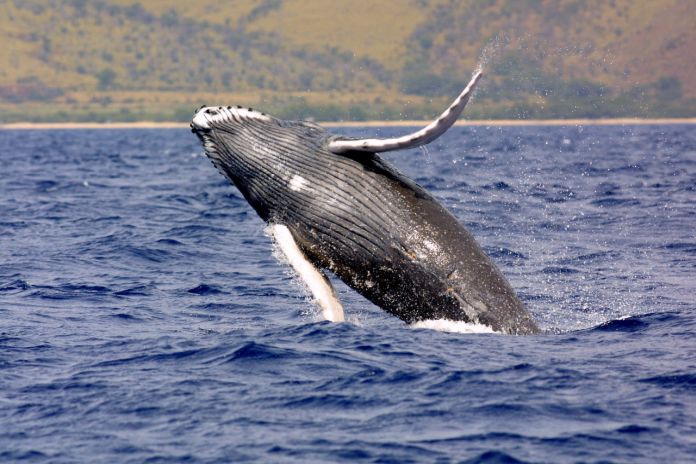HONOLULU, USA – The US Coast Guard joins partners during Operation Koholā Guardian to reduce risk to humpback whales among the Hawaiian Islands, January 1 through March 31, 2024.
US Coast Guard District 14 partners with National Oceanic Atmospheric Administration Office of Law Enforcement (OLE), and the Hawaii Division of Conservation and Resource Enforcement (DOCARE) during the humpback whale season around the Hawaiian Islands.
Operation Koholā Guardians is a focused mission that occurs during peak whale season, from January to March, that was designed to monitor and protect humpback whales, enforce humpback whale regulations, provide outreach and education to the community, and respond to distressed whales.
Thousands of humpback whales seasonally use the waters around the Hawaiian Islands as their principal breeding and calving wintering grounds. Hawaiian Islands Humpback Whale National Marine Sanctuary (HIHWNMS) is one of 15 National Marine Sanctuaries designated as special areas set aside for long-term protection and conservation and provides extremely important habitat for humpback whales.
Mariners and visitors are reminded that the following activities are prohibited and unlawful:
- A vessel, individual, or drone approaching within 100 yards of any humpback whale.
- Operating an aircraft within 1,000 feet of any humpback whale, except as necessary for takeoff or landing from an airport or runway.
- Harassing, hunting, capturing, or killing, or any attempt to do any of these actions, of any humpback whale in the sanctuary.
“Operation Koholā Guardian is a shining example of how the Coast Guard, alongside our invaluable partners at NOAA and the Hawaii Division of Conservation and Resource Enforcement, effectively safeguard the fragile marine ecosystems of the Hawaiian Islands,” said Lt. Cmdr. Nic Iannarone, the chief of enforcement at US Coast Guard Sector Honolulu.
“Through collaborative efforts, shared intelligence, and coordinated patrols, we ensure the safety of protected and iconic species like humpback whales, while simultaneously fostering responsible practices amongst ocean users. This collaborative approach is not only crucial for enforcing regulations but also for educating the public and fostering an appreciation for the delicate balance of our marine environment.”





